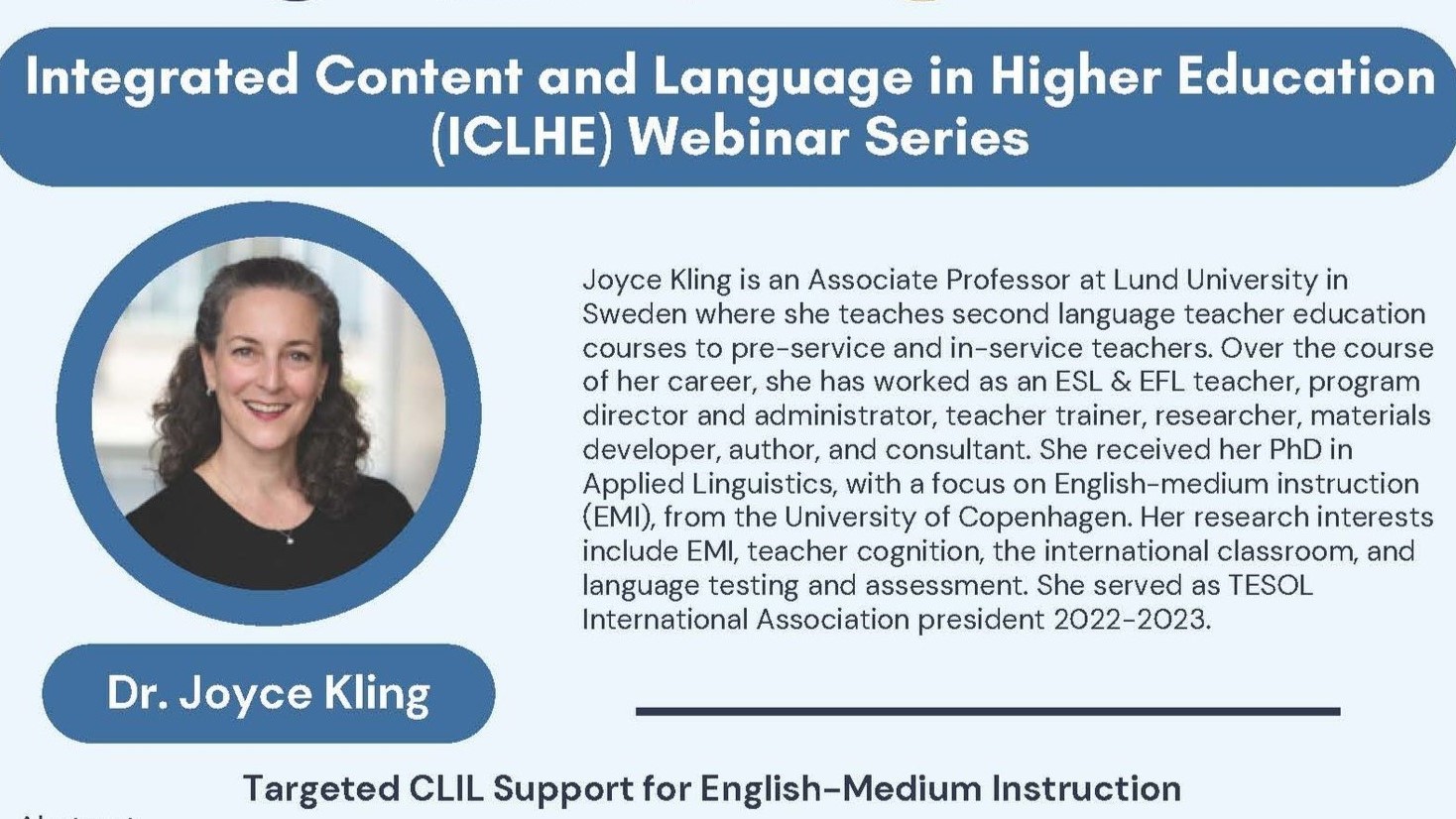Integrated Content and Language in Higher Education (ICLHE)

In an effort to enhance Integrated Content and Language (ICL) teaching, learning, and assessment in Algerian Higher Education, a groundbreaking webinar series supported by a two-year grant has commenced. The initiative is a collaborative endeavor involving the Algerian Ministry of Higher Education and Scientific Research, the United States Department of State, Columbia Global Center Tunis, and the Applied Linguistics/TESOL Program at Teachers College, Columbia University.
The second webinar in the series featured Professor Joyce Kling, Associate Professor at Lund University, Sweden who brought a wealth of experience to the discussion, drawing from her background in second language education and Applied Linguistics.
Professor Kling highlighted how the widespread implementation of English medium instruction (EMI) has prompted discussions on supporting language development in EMI courses and programs and that disciplinary instruction in non-English dominant contexts often lacks specific language learning goals, resulting in gaps in both student and teacher competencies with language teachers frequently bearing the responsibility of bridging these gaps to facilitate effective teaching and learning through English.
Moreover, as language learning typically takes a backseat in EMI instruction, students often miss out on opportunities to develop genre-specific knowledge and other essential language domains.
However, Professor Kling emphasized that through cross-disciplinary cooperation, development, and teaching, this situation can be rectified. By fostering dialogue between language and content teachers and establishing a sustainable infrastructure, EMI curricula can better address language and academic literacy needs. Drawing from three case studies at the University of Copenhagen, which leverage Content and Language Integrated Learning (CLIL) methodologies, Professor Kling demonstrated how collaboration between language teachers and content teachers can yield dual benefits.
These case studies underscored the significance of explicitly addressing academic language aspects overlooked by content teachers and providing support and training for content teachers in curricular development within EMI contexts. Through these examples, Professor Kling showcased practical strategies for integrating language development into disciplinary instruction, paving the way for enhanced collaboration and innovation in English medium instruction.
Looking ahead, the webinar series promises to continue exploring innovative approaches to Integrated Content and Language in Higher Education. Future sessions will delve into diverse topics, offering participants further opportunities to engage with leading experts in the field. Stay tuned for information regarding the upcoming webinars!